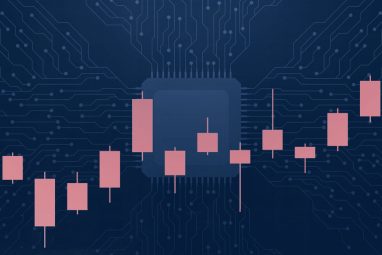Nilekani Flags 'a Perfect Storm of Multiple Colliding Trends'
The world is facing “a perfect storm of multiple colliding trends,” including rising trade barriers, a shift away from global integration, rapid advances in AI, and the push for cleaner energy, Infosys Ltd chairman Nandan Nilekani told shareholders at the company’s 44th annual general meeting on Wednesday.
News
- India Bets on Digital Public Infrastructure Model for Education AI
- OpenAI Retires GPT-4o as It Consolidates ChatGPT Models
- Adani Power Sets Up Nuclear Subsidiary
- Musk Unveils xAI Overhaul, Lunar AI Ambitions
- Former GitHub CEO Dohmke Raises $60 Million to Build AI Code Infrastructure
- Leadership Shakeup Deepens at xAI as Two Co Founders Exit

The world is facing “a perfect storm of multiple colliding trends,” including rising trade barriers, a shift away from global integration, rapid advances in AI, and the push for cleaner energy, Infosys Ltd chairman Nandan Nilekani told shareholders at the company’s 44th annual general meeting on Wednesday.
Nilekani said today’s global environment is “unlike anything seen before,” shaped by overlapping changes in policy, technology, and geopolitics.
Pointing to growing trade restrictions, Nilekani noted that companies can no longer rely on old supply models. “Tariffs are signaling to us that businesses must also derisk their sourcing. With bilateral and regional trade rules emerging as dominant forces, there’s a clear need to accelerate supply-chain diversification.”
He emphasized that this environment requires a dual focus: becoming more efficient today while staying relevant for the future.
On artificial intelligence, Nilekani said the fear and uncertainty that once surrounded generative AI has faded. The focus now is on integration and scale.
“Legacy system modernization and data architecture overhauls to ensure all the firm’s data is consumable by AI are becoming increasingly unavoidable. Companies need both AI foundries for innovation and AI factories for scaling,” he said.
Infosys is currently running 400 generative-AI projects, he said, adding: “We generated 10 million lines of code by AI last year.”
The company has developed 200 internal AI agents and is working on 30 more being deployed for clients. Around 20,000 Infosys employees now use GitHub Copilot in their daily work, Nilekani said.
The Infosys chair also said global capability centers (GCCs), once seen as competitors to Indian IT services firms, are now among their most important clients. “AI and GCCs are the new waves of growth, not threats,” he said.
The AGM also included updates on leadership. CEO and MD Salil Parekh was reappointed for a term through March 2027, and Jayesh Sanghrajka was named Chief Financial Officer, succeeding Nilanjan Roy, who stepped down after a multi-year stint in the role.
Infosys closed FY25 with a revenue of ₹162,990 crore ($18.6 billion), an operating profit of ₹31,747 crore (margin of 21.1%), and free cash flow of ₹34,549 crore, amounting to 44.8% of net income. Large-deal wins for the year totaled $11.6 billion.
Nilekani reaffirmed Infosys’s commitment to shareholder returns, stating the company has returned over ₹98,000 crore in the past five years, including a special dividend in FY25.
He also emphasized Infosys’s leadership in digital and cloud, noting that the company is ranked among the top providers in 58 digital categories and has maintained leadership positions in AI (under the Topaz brand) and cloud (under Cobalt) for five consecutive years.
In addition to expanding its technology capabilities, Infosys has made strategic acquisitions in energy consulting and cybersecurity, Nilekani said. The company has also extended its social impact, reaching over 10 million people through education and sustainability programs.
He closed by underscoring Infosys’s core strengths of AI and cloud capabilities, a unified global delivery model, and enduring client trust as key to navigating continued global uncertainty.






